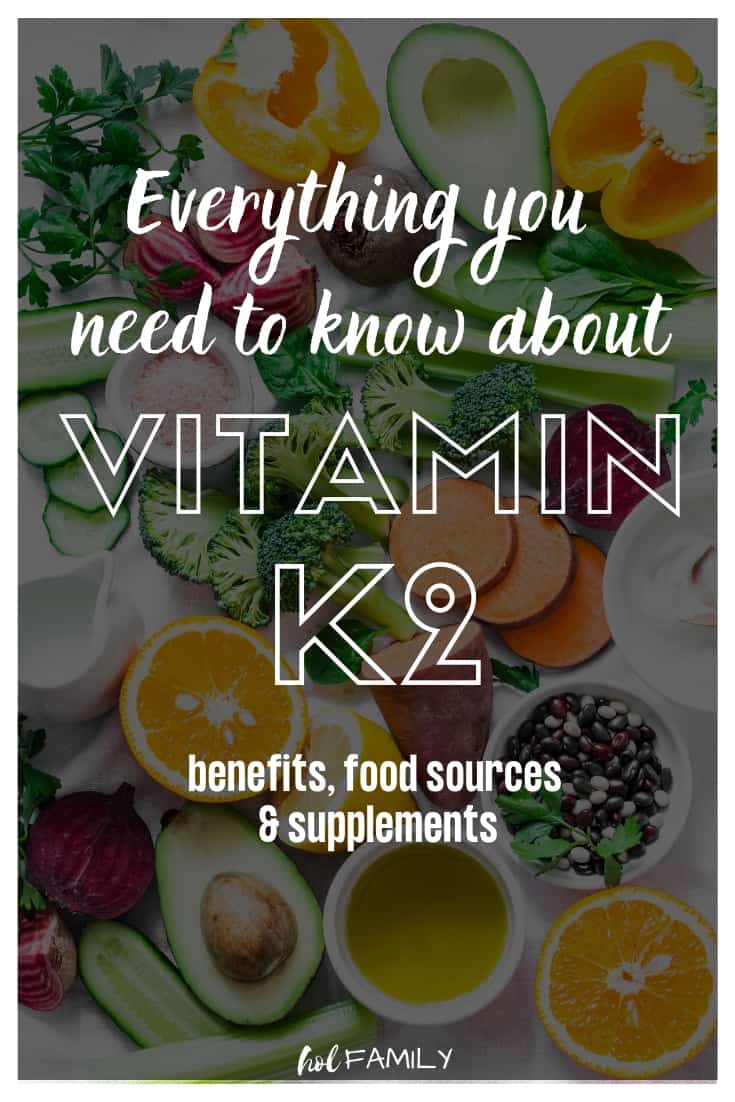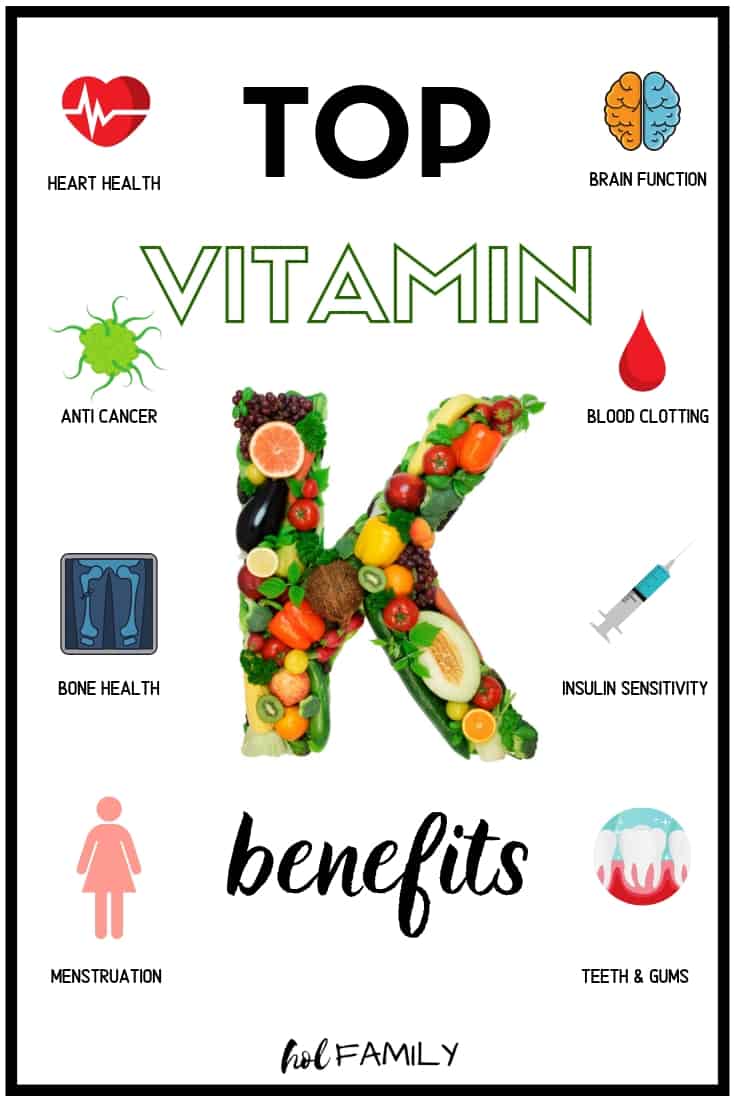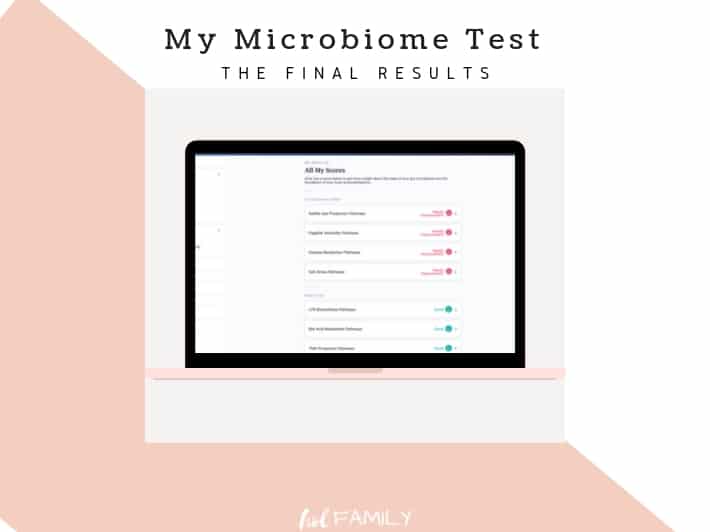
I found myself enthralled learning about vitamin K2 after I started to experience teeth sensitivity when drinking hot or cold beverages.
My research into why this might be occurring led me down a rabbit hole – one that inevitably guided me into the fascinating world of vitamin K2.
From a well functioning heart to strong teeth and healthy bones, vitamin K2 is absolutely crucial.
Some experts think it’s the missing link for many people suffering from dental cavities (even those who brush and floss well), gum recession, osteopenia and osteoporosis.
That’s a big statement.
So…
What is Vitamin K
Vitamin K is one of the fat soluble vitamins (A, D, E are the others), meaning its bodily absorption happens after it has been dissolved in fat. Hence why most fat soluble vitamins contain some type of oil or other fatty carrier.
While similar structurally, there are three compounds that make up vitamin K, all beneficial for their own reasons – phylloquinone (vitamin K1), menaquinone (vitamin K2) and menodione (vitamin K3).
Vitamin K1 is the most common form and is primarily known for its ability to clot blood. A true deficiency of vitamin K1 would quickly lead to excessive bleeding from the smallest of cuts.
Coupled with vitamin D, calcium (and some believe magnesium too), vitamin K2 is believed to play an important role in cardiovascular health and the maintenance of strong bones, teeth and gums. (1)
What’s The Deal With MK4 and MK7
MK4 and MK7 are just two different chain-variations of the same vitamin (there are 9 in total – i.e. menoquiones-vitamin-k-4, menoquiones-vitamin-k-5, etc. (MK-4 and MK-5 are the shorthands).
The MK4 variant is commonly found in animal meat, liver, eggs and grass fed butter.
Because MK4 supplements are synthetic, it’s often suggested that this form of vitamin K2 come primarily from food sources alone.
The MK7 variant is the byproduct of fermentation.
This particular menoquione can be found in some cheeses and other types of fermented foods. The most common source is a Japanese soybean ferment called Natto. The species of bacteria (Bacillus subtilis) used in this fermentation produces high levels of MK7.
Unlike MK4, MK7 supplements are not synthetic, they are naturally extracted byproducts as a result of the fermentation process.
Vitamin K Benefits and Functions

Vitamin K2 seems to be in the spotlight lately, and for good reason. The more we study this vitamin, the more fascinating the findings.
Some evidence suggests vitamin K2 may…
Improve Bone Density and Decrease the Chance of Developing Osteopenia and Osteoporosis.
Bones are meant to be strong, durable and impact resistant. They’re made up primarily of collagen and calcium (for strength and density).
Osteopenia is the beginning of bone density loss and weakness. If not addressed, osteopenia can eventually turn into osteporosis, or porous, brittle bones that are highly susceptible to fractures and breaks.
Evidence suggests that vitamin K2 stimulates an anabolic (or growth) response in bones. (2)
Improves the Health of Teeth and Gum Tissue.
The jawbone is linked to the periodontal ligament. When weakened, this bone can directly affect gums (recession) around the teeth.
One of vitamin K2’s functions is to stimulate the protein osteocalcin which funnel’s calcium out from the bloodstream and into appropriate areas of the body such as the bone and teeth. (3)
This process has a direct correlation to the health and ultimately longevity of teeth and gum tissue.
Likewise, a deficiency or low levels of this vitamin can, you guessed it, have the opposite effect.
Improve Cardiovascular Health and Reduce the Likelihood of Heart Disease
Atherosclerosis or arterial hardening is extremely dangerous. Symptoms are location specific, depending on which arteries have hardened. In the scariest of situations, a heart attack or stroke may occur.
Keeping arteries limber, unclogged and youthful are one of the keys to cardiovascular health.
There is some observational studies that imply vitamin K2 can actually prevent the buildup of calcification in the arteries. (4), (5), (6)
Vitamin K Foods
It’s not always possible to get our vitamin requirements from the food we eat, but I believe it’s still good practice to try.
Below I’ve listed some of the foods highest in vitamin K.
K1 Food Sources
Mostly green vegetables such as:
There are also small amounts of vitamin K1 in the skins of fruits and other vegetables too.
- Swiss Chard
- Collard Greens
- Spinach
- Kale
- Turnip Greens
- Brussels Sprouts
- Brocolli
K2 Food Sources
- Natto (fermented soybeans, highest source of MK7)
- All meat (preferably grass fed)
- Liver
- Eggs
- Cheeses
- Some fermented vegetables (i.e. sauerkraut)
Vitamin K Deficiency – Signs and Symptoms
While it’s rare to actually have a true deficiency of vitamin K1, its K2 counterpart is a whole different story.
The belief used to be that our gut micriobiome could easily convert adequate levels of vitamin K1 into K2.
It’s beginning to appear this may not be entirely true as chronic deficiency of this vitamin is hard to pinpoint.
The symptoms manifest gradually, over the course of many years.
And the deficiency can show up suddenly as a cardiac related disease, a diagnosis of osteopenia or osteoporosis following a bone density scan, or fast paced oral decline (excessive gum recession, dental cavities).
Fortunately our body is resilient and very forgiving.
The best course of action to prevent and reverse a deficiency is to make it a habit to eat foods high in the vitamin and take a good quality vitamin K supplement.
Vitamin K Supplement – Should You Take One?
It’s entirely up to you.
Some people believe that we should get all of our vitamins from the food we eat.
While this sounds good and I, myself believe it in theory, it’s often not possible in the real world.
Sometimes things are just outside of our control, whether it be the cost of organic, the availability of food, taste and texture preferences (shout out to all the parents out there), leaky gut permeability, and so forth.
So supplements are necessary sometimes. Especially if your goal is to be as healthy as possible.
I’ve personally noticed a dramatic decline in my oral health over the last few years and in analyzing my diet, I came to the clear conclusion that I have probably been chronically low in vitamin K2 for years.
Therefore, I decided a supplement was wise for myself.
I figured if there was a way to protect my teeth, bones and ultimately heart, I wanted to jump at the chance to do so.
I would like to point out again that all vitamin K2 MK4 supplements are synthetic. If you decide to take one, I advise that you stick with an MK7 version.
Take note of this study that concluded MK7 supplementation was not only absorbed better but also supplied the body with a higher level of MK4 (after bodily conversion) than a straight MK4 supplement (7)
After much deliberation, this is the vitamin K supplement I chose and currently take. Use the discount code holfam10 to save an additional 10% off.
Wrap Up
Science is beginning to understand just how paramount vitamin K2 is to human health.
Where calcium ultimately ends up in our bodies can be a large contributor to our overall health – specifically our heart, bones and teeth.
Vitamin K2 is the driver of that decision. It activates osteocalcin which directs where calcium should and should not go (away from our arteries and into our bones and teeth).
A chronic deficiency of this vitamin can be detrimental to our health; it’s good practice to try and incorporate as many vitamin K rich foods into our diets as possible and possibly supplement for an ongoing and ideal level of health.












